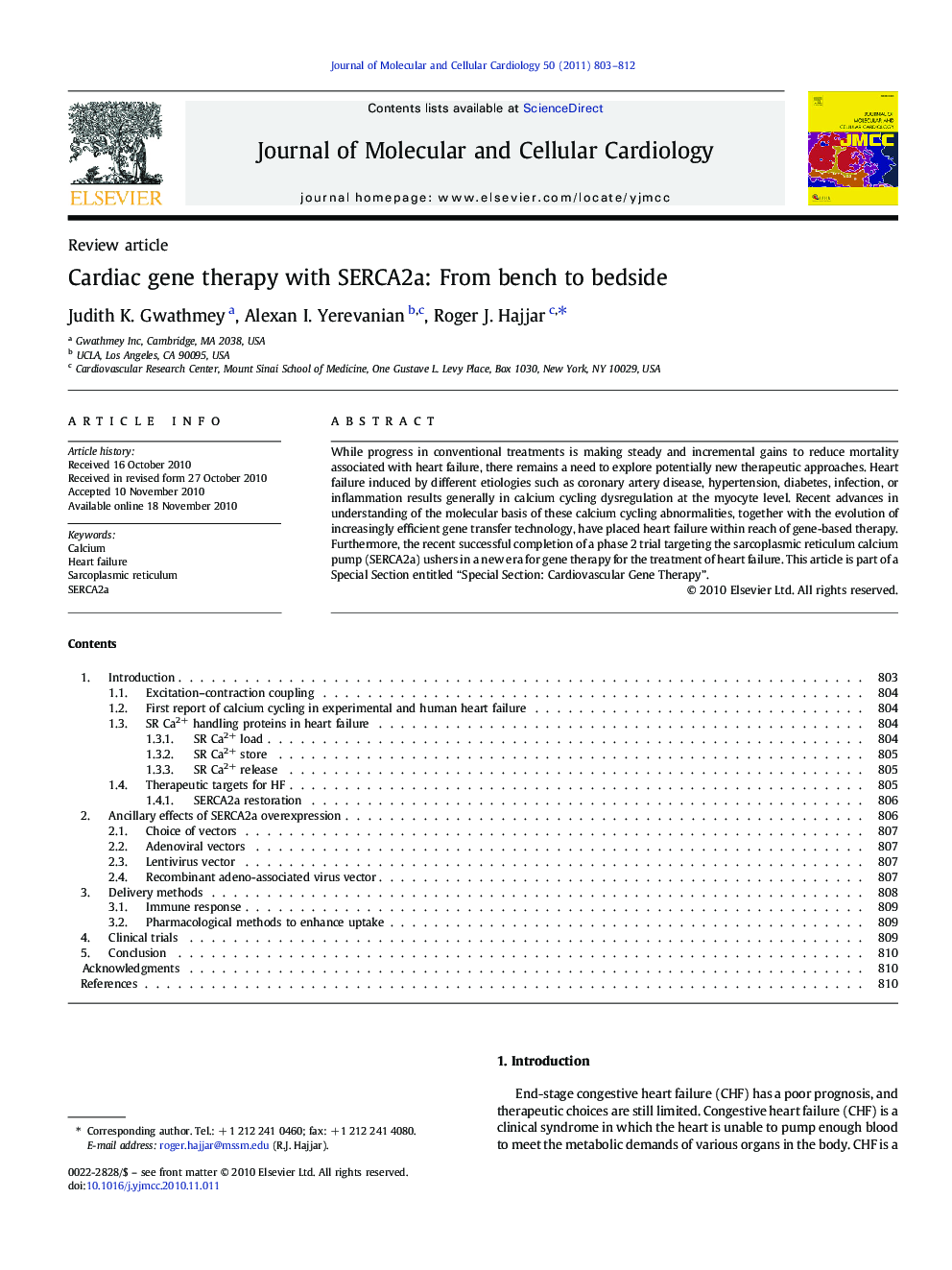| Article ID | Journal | Published Year | Pages | File Type |
|---|---|---|---|---|
| 2190880 | Journal of Molecular and Cellular Cardiology | 2011 | 10 Pages |
While progress in conventional treatments is making steady and incremental gains to reduce mortality associated with heart failure, there remains a need to explore potentially new therapeutic approaches. Heart failure induced by different etiologies such as coronary artery disease, hypertension, diabetes, infection, or inflammation results generally in calcium cycling dysregulation at the myocyte level. Recent advances in understanding of the molecular basis of these calcium cycling abnormalities, together with the evolution of increasingly efficient gene transfer technology, have placed heart failure within reach of gene-based therapy. Furthermore, the recent successful completion of a phase 2 trial targeting the sarcoplasmic reticulum calcium pump (SERCA2a) ushers in a new era for gene therapy for the treatment of heart failure. This article is part of a Special Section entitled “Special Section: Cardiovascular Gene Therapy”.
Research Highlights► Unmet needs using current therapies for treatment of heart failure. ► Advances in the understanding of the molecular basis of heart failure. ► Cardiomyocyte-specific targets have emerged that are difficult to manipulate pharmacologically. ► Increasing efficient gene transfer technology. ► Promising Early Clinical results of gene therapy targeting SERCA2a.
